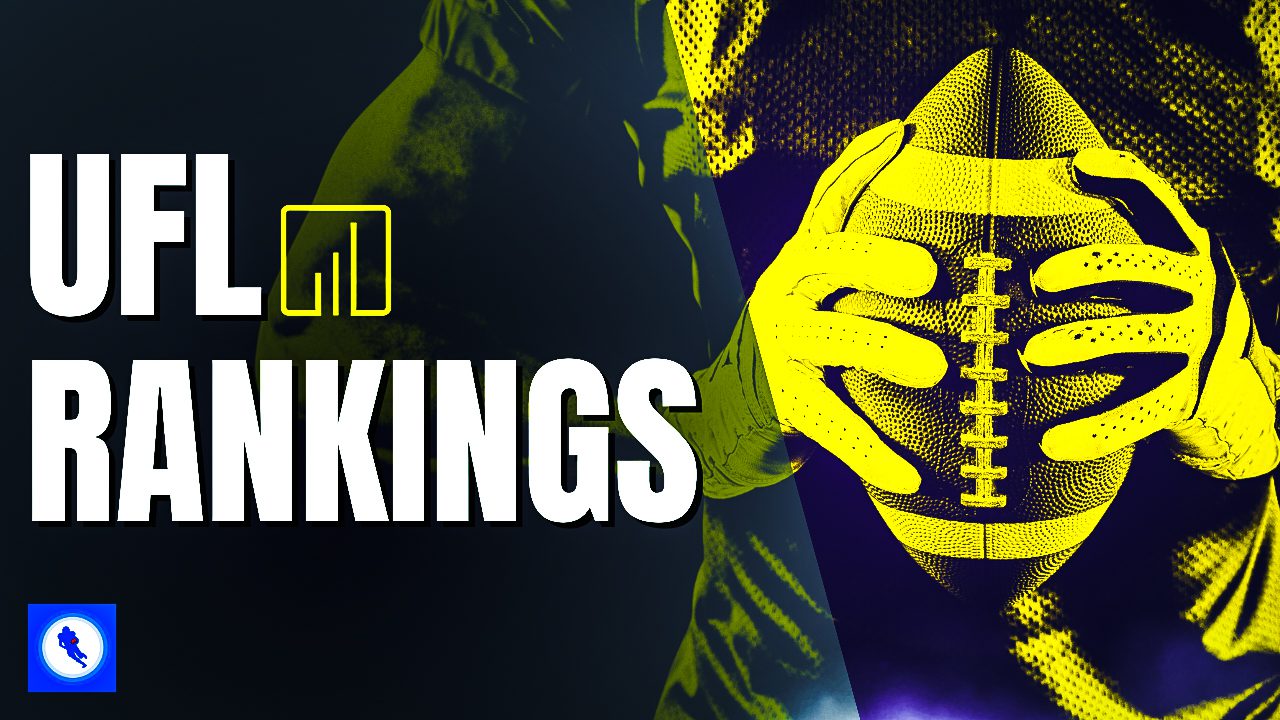QB Mitch Trubisky's value in dynasty football leagues is a point of uncertainty in 2018. Taylor Maxston assesses the value of the Bears quarterback and whether you should buy or sell Trubisky.
When it comes to success in the National Football League, there are a number of ways to put together a championship contending roster. Some emphasize a dominant defense that can suffocate any opposing offense, while others involve building a rock solid offensive line to control the tempo of the game. However, it might be more important in today's NFL than ever before to surround your young signal-caller with a bevy of talented skill position players.
Quarterbacks Carson Wentz of the Philadelphia Eagles and Jared Goff of the Los Angeles Rams took leaps and bounds in their sophomore seasons because their teams sought out and equipped them with numerous offensive weapons. Both were productive fantasy quarterbacks in 2017 that surprised many owners, with Wentz finishing as QB-5 and Goff finishing as QB-12 in standard scoring formats.
Enter Chicago Bears quarterback Mitch Trubisky. After trading up to acquire him with the second overall pick in the 2017 NFL Draft, Trubisky finished his rookie year with just 2,193 passing yards and nine total touchdowns across 12 starts. His 59.3 percent completion rate and average of 6.64 yards per attempt don't inspire much confidence in a breakout second year, but these numbers don't tell the full story of his rookie campaign. Many fantasy owners will be intrigued by Trubisky's brilliant flashes of athleticism and arm talent on display throughout last season in trying to project his development as a startable fantasy quarterback. With those owners in mind, here is my take on how to evaluate Mitch Trubisky in dynasty leagues.
Be sure to check all of our fantasy football rankings for 2025:- 2025 fantasy football rankings (redraft)
- Dynasty fantasy football rankings
- 2025 NFL rookie fantasy football rankings
- Best ball fantasy football rankings
- Quarterback fantasy football rankings
- Running back fantasy football rankings
- Wide receiver fantasy football rankings
- Tight end fantasy football rankings
The Talent: Room to Improve
Trubisky saw his first start against the Minnesota Vikings in Week 5 of last season, but it became evident from the get-go that the Bears were going to keep the training wheels on and only ask him to manage games. At season's end, the Bears averaged a league-lowest 29.6 pass attempts per game and Trubisky himself went deep on only 9.1 percent of his attempts, the fourth-lowest in the league according to Pro Football Focus. The overall conservative nature of the offense showed on fantasy scoreboards, with Trubisky finishing as QB-28 in standard scoring.
Once the offense began to open up and place more demands on Trubisky, there were rookie flashes of arm talent combined with mind-boggling mistakes. In a Week 10 contest against the Green Bay Packers, Trubisky showed exceptional anticipation in finding his wide receivers open against both man and zone coverage. Furthermore, he had the eighth-best passing grade per snap on third and fourth down according to Pro Football Focus.
Unfortunately for dynasty owners, there will remain plenty of question marks heading into the 2018 season. Trubisky was clearly impacted by the Bears' run-first approach in the red zone, as he averaged a dismal 2.8 yards per attempt within opposing teams' 20-yard line and threw only five touchdowns. He also had nine turnover-worthy throws (according to PFF) that ultimately led to seven interceptions, meaning the money plays for fantasy points simply weren't there.
While he will need to take additional steps this offseason to fix some of his throwing mechanics, I blame much of Trubisky's stifled stats on the Bear's offense relying primarily on play-action and short-to-immediate passes with no deep threat to stretch the field. In short, one shouldn't be too quick to judge Trubisky's ceiling based on his rookie season.
The Offense: Completely Revamped
One simple fact that needs to be taken into account for any evaluation of Trubisky's dynasty value is how he lacked a foundation of serviceable pass-catchers around him when he entered the league. Once presumed No. 1 wideout Cameron Meredith went down with a season-ending ACL/MCL injury in the 2017 pre-season, fantasy owners struggled to find any possible receiver that could be productive, let alone fantasy-relevant. Among several lesser known names like Kendall Wright, Kevin White, and Dontrelle Inman, none finished with over 60 receptions or 700 receiving yards on the 2017 season.
Chicago has certainly made waves this offseason after sending former head coach John Fox packing and hiring Kansas City Chiefs offensive coordinator Matt Nagy to fill the vacancy. Many will remember that once Kansas City head coach Andy Reid ceded play call duties to Nagy back in December of the 2017 season, the team would go on to win four of their five remaining games and average 28.6 points during that stretch. If Nagy can find comparable players to running back Kareem Hunt and wide receiver Tyreek Hill (who finished as RB-3 and WR-4 in standard scoring last season respectively) in Bears rushers Jordan Howard and Tarik Cohen, Trubisky will be the clear beneficiary of a new offensive philosophy in Chicago.
The team also went out and added wide receivers Allen Robinson and Taylor Gabriel through free agency, immediately bumping up the talent in their receiving unit with a couple of deep threat play-makers. The signing of former Philadelphia Eagles tight end Trey Burton will also provide yet another security blanket option for Trubisky, meaning his short-yardage passing numbers should remain as consistent as ever. It's hard not to have 2017 Los Angeles Rams-ish optimism for this team after its offseason additions, but the true value comes with how Trubisky will have many more opportunities for fantasy scoring than ever before.
The Schedule: One that Screams Fantasy Success
Although not entirely relevant for analyzing long term dynasty success, the Bears 2018 schedule features several juicy matchups and is overall one of the softest in the league for fantasy purposes. Chicago benefits tremendously from the NFC North facing off with the NFC South and AFC East, two conferences that are top-heavy with their overall talent. The Seattle Seahawks are no longer the same "legion of boom" defense that inspired fear in quarterbacks across the league, while Arizona and San Francisco suffer from multiple holes on that side of the ball. Turning to the AFC East, the Miami Dolphins, Buffalo Bills, and New York Jets are all in rough shape after going through the 2018 offseason and should offer plenty of trips to the red zone for opposing offenses.
If that weren't enough, the Bears will also face off against the Tampa Bay Buccaneers and New York Giants, two teams that gave up the first and second-most passing yards per game in 2017. As icing on the cake, the second of their two intra-divisional contests with the Minnesota Vikings ferocious defense will take place in Week 17, a week that is typically outside of the fantasy playoffs in most league formats. If Trubisky is going to have a breakout season, this is as good a season as any to have it!
Conclusion
We really haven't seen what Chicago Bears quarterback Mitch Trubisky is truly capable of yet. The struggles he had in his rookie season aren't solely attributable to him, as there was an overall lack of talent around him and conservative play-calling significantly capped his ceiling. There is obviously a great deal of risk in valuing Trubisky too high, considering the new regime and his inexperience, but the massive offseason improvements and light fantasy schedule mean his name is one to watch out for in dynasty formats.
More 2018 Dynasty League Strategy
 RADIO
RADIO


























